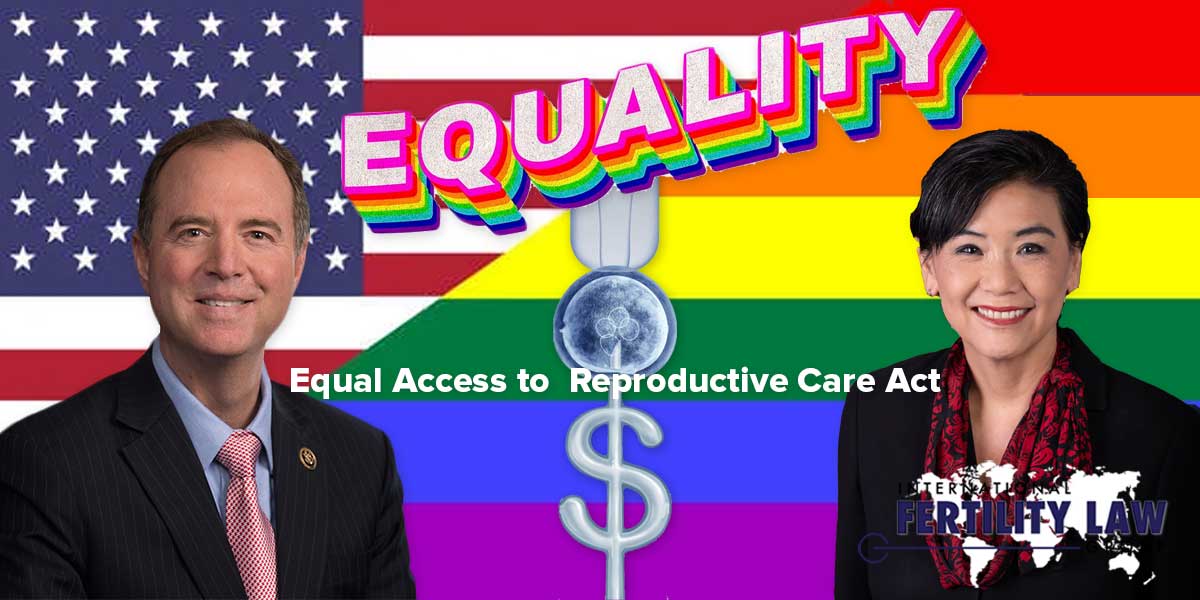
06 Jul 2022 Proposed Law Allows LGBTQ Parents to Claim Assisted Reproduction Tax Deduction
On June 22, California Congressmembers Adam Schiff and Judy Chu introduced a bill that would eliminate a significant inequity in the U.S. tax code and help make assisted reproduction more affordable for all intended parents, including LGBTQ intended parents.
Just two days later, shockwaves from the U.S. Supreme Court’s devastating decision stripping American women of the right to control their own bodies nearly blew this piece of good news out of the water. But it’s worth taking time now to celebrate the introduction of the Equal Access to Reproductive Care Act, which was co-sponsored by another 16 Democratic lawmakers: If enacted, the law would give LGBTQ people the same rights as heterosexual people to claim assisted reproduction expenses as a legitimate medical deduction on their income taxes.
As we wrote just last month, even though the U.S. Supreme Court’s 2015 decision legalizing same-sex marriage means LGBTQ families should be treated the same as heterosexual families under law, in practice that has not been the case. Many state laws governing marriage and parentage continue to discriminate on the basis of gender and sexual orientation. As a result, LGBTQ parents seeking to create families using assisted reproduction often must take extra legal measures, such as second-parent adoption and court orders establishing parentage, at additional expense, that heterosexual parents never have to worry about. Additionally, in the small number of states and in corporations that provide insurance coverage for fertility treatments such as egg or sperm donation, IVF and surrogacy, narrow, outdated rules defining “infertility” make many LGBTQ individuals ineligible for coverage.
All of those obstacles mean that the costs of parenting for LGBTQ people, many of whom must rely on assisted reproductive technology, usually is higher than those borne by their heterosexual peers.
The text of the bill is relatively short and simple. Defining “assisted reproduction” as “any methods, treatments, procedures, and services for the purpose of effectuating a pregnancy and carrying it to term, including gamete and embryo donation, intrauterine insemination, in vitro fertilization, intracervical insemination, traditional reproductive surrogacy, and gestational reproductive surrogacy,” the bill states: “Assisted reproduction shall be treated as medical care of the taxpayer or the taxpayer’s spouse or dependent to the extent that the taxpayer or the taxpayer’s spouse or dependent, respectively, intends to take legal custody or responsibility for any children born as a result of such assisted reproduction.”
Outdated IRS Tax Rule Penalizes LGBTQ Parents
As we reported in April, up to now the IRS has clung to a policy of allowing tax deductions for in vitro fertilization and surrogacy expenses only when the taxpayer is medically infertile. As reported by The Washington Blade, “In the instance of same-sex couples or LGBTQ individuals, the IRS has argued that surrogacy and IVF are not needed as a result of a medical condition causing infertility, but rather a choice not to have one’s own children.” The IRS affirmed its policy in a January 2021 Private Letter Ruling, as we wrote.
“Only costs and fees directly attributable to medical care for diagnosis, cure, mitigation, treatment, or prevention of disease, or for the purpose of affecting any structure or function of the body of the taxpayer, the taxpayer’s spouse, or taxpayer’s dependent qualify as eligible medical expenses,” the IRS wrote. “Expenses involving egg donation, IVF procedures, and gestational surrogacy incurred for third parties are not incurred for treatment of disease nor are they for the purpose of affecting any structure or function of taxpayers’ bodies.”
For generations, American LGBTQ taxpayers were penalized financially because they were denied the hundreds of rights and benefits other Americans received through legal marriage, ranging from favorable tax rates to Social Security death and survivor benefits to inheritance taxes. Codifying equal treatment of LGBTQ taxpayers into U.S. law by giving them the same access to medical deductions for fertility care is a start toward making family-building equally affordable and accessible for all Americans. Perhaps even more importantly, as all of us continue to decode what the Court’s disastrous decision overturning Roe v. Wade means going forward, passage of this historic bill would send a reassuring message to the thousands of LGBTQ families wondering if American justice is for everyone, or only for the minority in power.

















